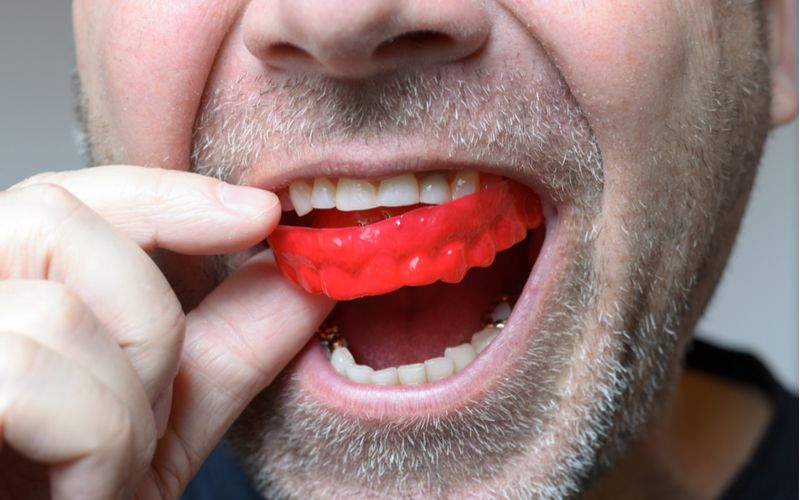Mouthguards: All You Need to Know

If you’re like many people, you likely find yourself grinding your teeth at night or clenching you jaw. While these might seem innocuous, teeth grinding and jaw clenching can lead to serious problems. These include:
- Cracked teeth
- Broken teeth
- Muscle stiffness
- TMD/TMJ – temporomandibular joint disorder
What is a mouthguard/nightguard?
A mouthguard is a device used to help protect your teeth from the problems caused by grinding your teeth and clenching your jaw. It’s custom made to fit your mouth and designed to protect your teeth and soft tissues like gums and lips, from injury.
This device is placed in your mouth before you go to bed and worn while you sleep. It’s removed in the morning and placed in its case for safekeeping until you’re ready to wear it again.
How do I get a mouthguard?
Before you get your mouthguard you’ll come in for an appointment with Dr. Laudie. During this appointment, you’ll have impressions taken of your mouth, as well as an exam, performed to make sure you don’t have any underlying problems.
After we take the impressions they’re sent to the lab, where the mouthguard is made. Once we get your guard we’ll call you in for another appointment where we’ll check it’s fit, make any final adjustments, and send you on your way.
How do I care for a mouthguard?
Your mouthguard is an important part of keeping your mouth healthy. With that in mind, it’s important you take good care of it so you don’t have to bother getting another one made. Proper care also eliminates bacteria and ensures odors don’t build up.
First and foremost, it’s important that you not chew the mouthguard, as this weakens it and makes its job to protect you that much harder.
It’s also important that you wash your mouthguard after every use using your favorite toothpaste, and dry it using a clean washcloth before storing.
A Note About TMJ
TMJ can develop because of grinding or clenching your teeth. Doing so puts pressure on the join that acts as a hinge to open your mouth and, as a result, you might notice popping or clicking noises, as well as your jaw locking. This condition is annoying, sometimes painful, and if left to worsen will require surgery to correct.
This is why it’s so important that you protect your mouth from the start. Give us a call to learn more about mouthguards and how they can help protect you from more costly treatments down the line.
